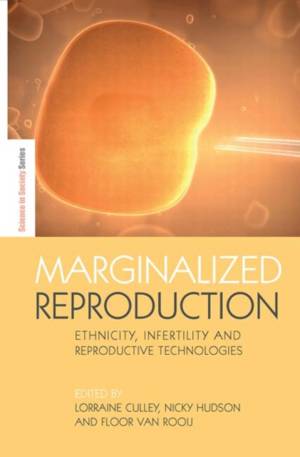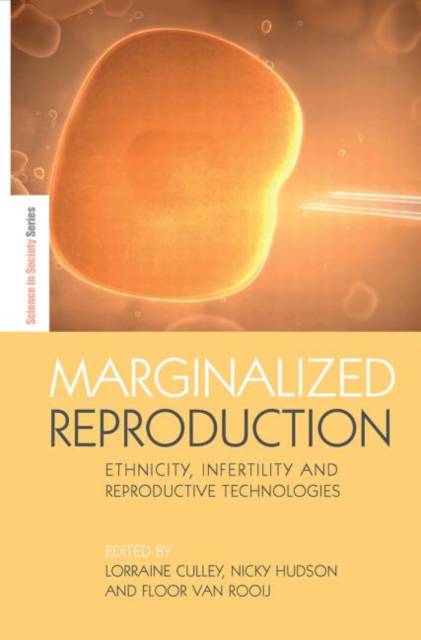
- Afhalen na 1 uur in een winkel met voorraad
- Gratis thuislevering in België vanaf € 30
- Ruim aanbod met 7 miljoen producten
- Afhalen na 1 uur in een winkel met voorraad
- Gratis thuislevering in België vanaf € 30
- Ruim aanbod met 7 miljoen producten
Marginalized Reproduction
Ethnicity, Infertility and Reproductive Technologies
Omschrijving
Worldwide, over 75 million people are involuntarily childless, a devastating experience for many with significant consequences for the social and psychological well-being of women in particular. Despite greater levels of infertility and strong cultural meanings attached to having children, little attention has been paid politically or academically to the needs of minority ethnic women and men. This groundbreaking volume is the first to highlight the ways in which diverse ethnic, cultural and religious identities impact upon understandings of technological solutions for infertility and associated treatment experiences within Western societies. It offers a corrective to the dominance of the narratives of hegemonic groups in infertility research.
The collection begins with a discussion of fertility prevalence and access to treatment for minorities in the West and considers some of the key methodological challenges for social research on ethnicity and infertility. Drawing on primary research from the US, the UK, Eire, Germany, the Netherlands and Australia, the book then turns the spotlight onto the ways in which minority status and cultural and religious mores might impact on the experience of infertility and assisted reproductive technologies. It argues that more equitable access to culturally competent assisted conception services should be an essential component of a transformatory politics of infertility.
Specificaties
Betrokkenen
- Uitgeverij:
Inhoud
- Aantal bladzijden:
- 224
- Taal:
- Engels
- Reeks:
Eigenschappen
- Productcode (EAN):
- 9780415849425
- Verschijningsdatum:
- 12/12/2013
- Uitvoering:
- Paperback
- Formaat:
- Trade paperback (VS)
- Afmetingen:
- 152 mm x 231 mm
- Gewicht:
- 340 g

Alleen bij Standaard Boekhandel
Beoordelingen
We publiceren alleen reviews die voldoen aan de voorwaarden voor reviews. Bekijk onze voorwaarden voor reviews.










